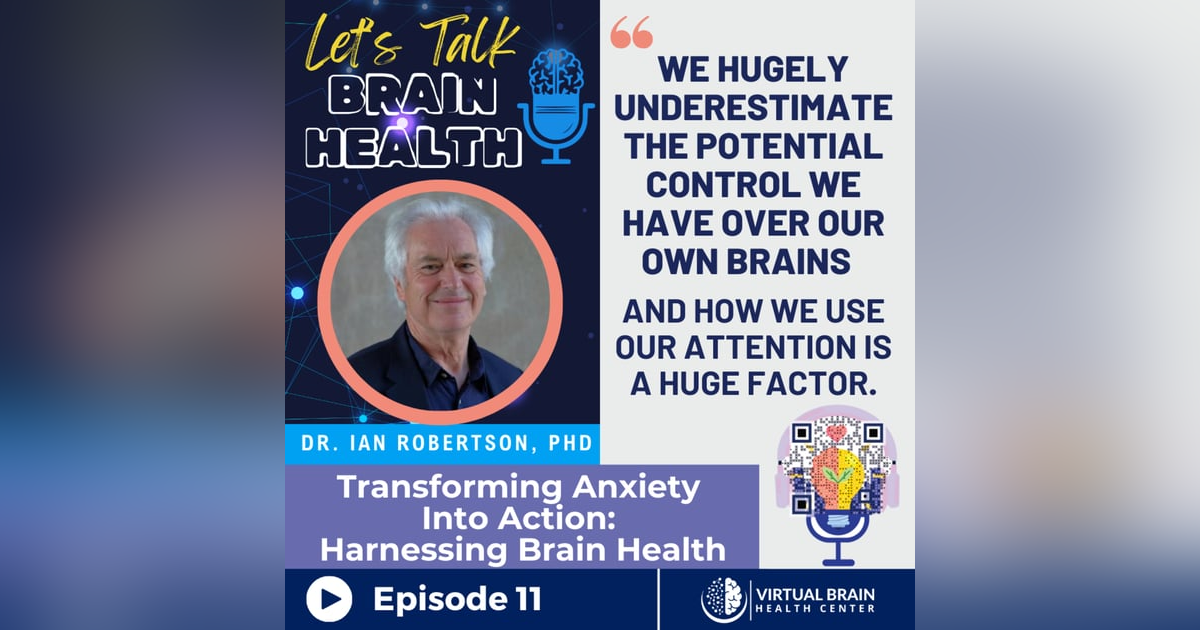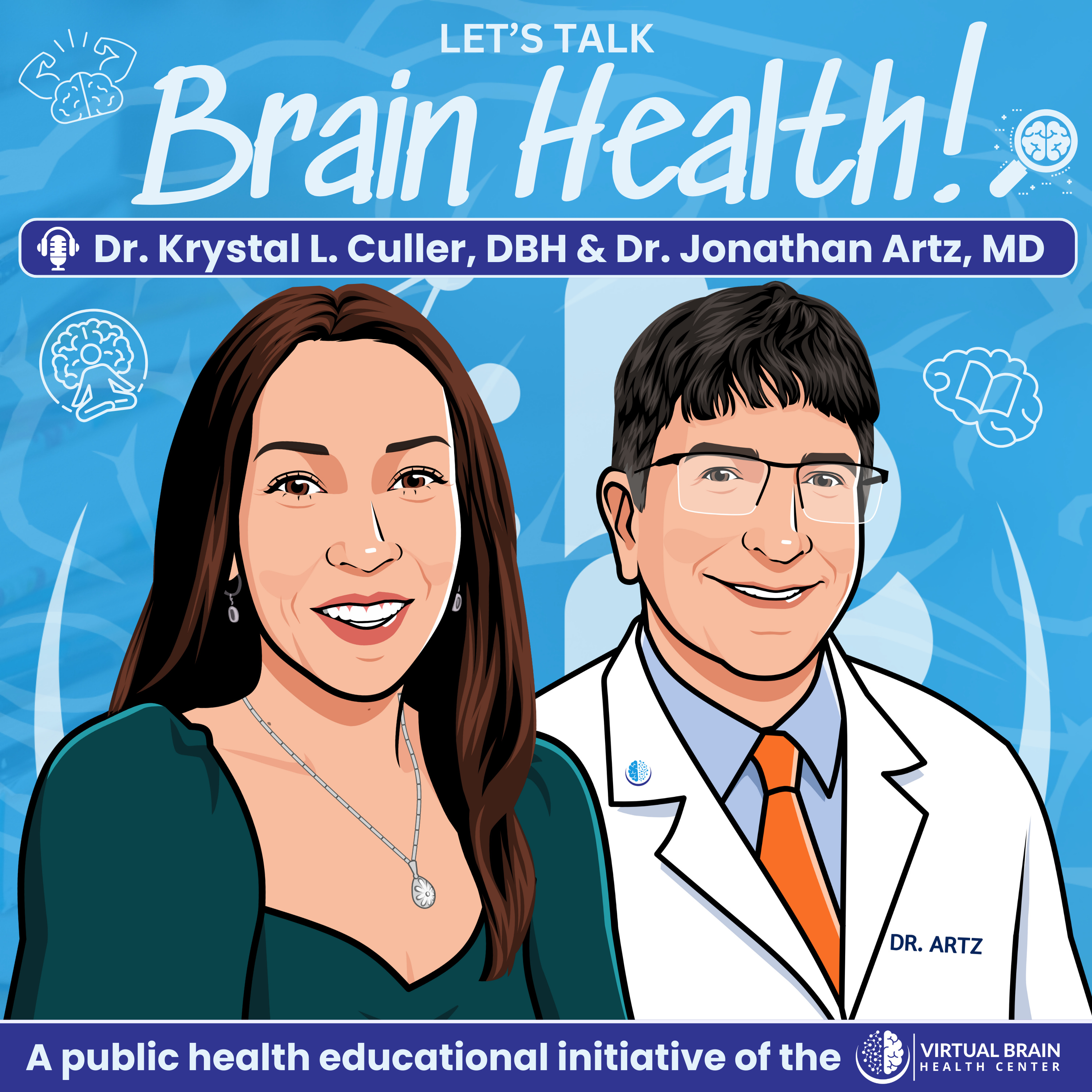Transforming Anxiety into Action: Harnessing Brain Health with Dr. Ian Robertson

In this episode of the "Let's Talk Brain Health" podcast, Dr. Ian Robertson, Ph.D., a renowned clinical psychologist and brain health expert, delves into the intricacies of the human mind and its capacity for resilience and adaptation. With over four decades of experience in neuropsychology and brain rehabilitation, Dr. Robertson shares his insights on how attention systems in the brain can be harnessed for emotional and cognitive control.
Dr. Robertson emphasizes the often-underestimated power individuals have over their brains. He explains that managing attention is crucial for gaining control over emotions and health. His work at the Global Brain Health Institute and Trinity College Dublin has significantly influenced both academia and public understanding of brain health.
The conversation shifts to stress, defined as the perception of environmental demands exceeding one's coping abilities, leading to anxiety. Dr. Robertson highlights the double-edged nature of human evolution: while our advanced brains enable future planning and goal-setting, they also predispose us to chronic anxiety. This anxiety, if sustained, can have detrimental effects on our bodies, emotions, thinking, and behavior. He stresses the importance of action in combating anxiety, citing the transformative power of taking even small steps.
Dr. Robertson also discusses the Brain Health Project at the University of Texas, Dallas. This ambitious project aims to improve brain health across the lifespan through interventions and annual assessments of participants. The project challenges the static view of brain abilities, encouraging improvement in various cognitive and emotional aspects.
In closing, Dr. Robertson advises listeners not to be overwhelmed by stress or anxiety. By understanding and acknowledging these feelings, individuals can find confidence in action despite anxiety, ultimately gaining control over their brain health.
Visit Dr. Robinson’s website
Learn more about the Brain Health Project at
--- Support this podcast: https://podcasters.spotify.com/pod/show/virtualbrainhealthcenter/support

Neuropsychologist & Emeritus Professor of Psychology
Dr. Ian Robertson, Ph.D. is a clinical psychologist and leading researcher on how individuals can harness the mind’s attention systems. Dr. Robertson serves as Co-Leader of The BrainHealth® Project, a landmark scientific study designed to define, measure, and improve brain health and performance across the lifespan.
For over four decades, his research focused on the neuropsychology of brain rehabilitation and attention. He has more than 200 published books and articles in this field. His research and writings focus on ways to maximize the brain’s capacity to reshape itself and give every person a sense of control over their emotions and cognitive function.
In addition to his research endeavors, Dr. Robertson has played a pivotal role in mentoring and shaping the careers of countless students, professionals, and Fellows as the founding Co-Director of the Global Brain Health Institute and Emeritus Professor at Trinity College Dublin, where he previously founded the Institute of Neuroscience.
Dr. Robertson's influence extends far beyond the academic realm, as he actively engages with the public through various media outlets, offering valuable insights on the complexities of the human mind. His contributions have earned him recognition and respect from peers and students worldwide, solidifying his legacy as a luminary in the field of psychology and neuroscience.







